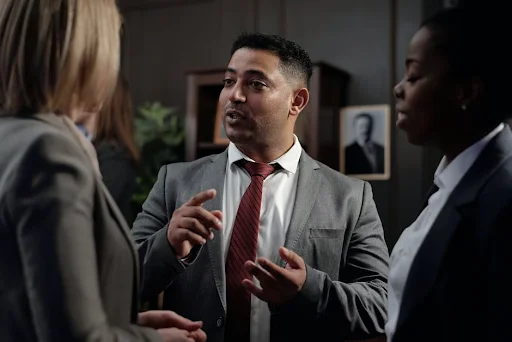Legal misunderstandings can turn a bad situation into a worse one. When people act on incorrect assumptions, they create problems for themselves before ever stepping into a courtroom. Instead of building a smart strategy, they rely on what they’ve seen on TV or heard from friends. These errors delay real help and damage their chances of a fair outcome. Knowing what matters most in a legal defence can make the difference between resolution and regret.
Assuming You Don’t Need a Lawyer for “Minor” Issues
Many people believe they only need legal representation for high-stakes situations. This false idea causes them to go into legal proceedings unprepared. Even a traffic case or misdemeanor can lead to long-term consequences if handled poorly. Without professional guidance, you may overlook options for dismissal, reduction, or alternative resolutions. Always speak with a qualified attorney before deciding how to handle your case.
Believing You Can “Explain Everything” to Get Out of It
Some individuals think that if they tell their side of the story clearly enough, everything will resolve in their favor. They start talking to police or other authorities without understanding their rights. You risk incriminating yourself when you speak without counsel. Law enforcement may misinterpret your words or use them against you later. A smart defence begins with silence and legal advice, not a casual explanation.
Thinking All Lawyers Do the Same Thing
Legal specialties exist for a reason. You wouldn’t ask a dentist to perform heart surgery, and the same principle applies to legal professionals. Someone who handles contracts may lack courtroom experience. When facing criminal or civil claims, choose someone with relevant expertise. A firm such as Reich & Binstock LLP, and other similar ones, provides that kind of focused representation to help people navigate complex legal challenges. Picking the right lawyer requires attention, research, and a clear understanding of the case’s needs.
Believing Legal Outcomes Always Hinge on Truth
People often think that as long as they tell the truth, the outcome will work in their favor. Truth matters, but legal cases rely on evidence, procedure, and law, not just honesty. A truthful statement with no proof behind it will not convince a judge or jury. You must build your case on documents, witness testimony, and rules of admissibility. Belief in fairness does not replace the need for strategy and support.
Readers also enjoyed this connected article—check it out.
Ignoring the Importance of Deadlines and Paperwork
Legal procedures involve strict deadlines and formatting requirements. Missing a single filing date or submitting incomplete documents can lead to case dismissal or default judgments. Courts do not bend rules for confusion or oversight. You stay on track by organizing paperwork, marking deadlines, and working with a detail-oriented legal team. Proactive effort keeps your case alive and strong.
Believing You Can Represent Yourself With Internet Advice
The internet offers no shortage of legal tips. While blogs, forums, and videos may provide helpful overviews, they rarely apply to the specifics of your case. Misreading a statute or misunderstanding case law puts your outcome at risk. Representing yourself without professional training adds stress and uncertainty to an already complex process. Always evaluate whether the risk of going solo outweighs the cost of proper help.
Expecting Instant Results From Legal Action
The legal process moves slowly, often over months or years. Some people expect quick results and grow frustrated when the system doesn’t deliver. They may pressure their attorneys to settle or stop responding to court communications. That impatience causes mistakes and lost opportunities. You benefit by staying engaged, informed, and open to the pace required for a proper defence.
Thinking Public Defenders Provide the Same Experience
Public defenders do valuable work, but their caseloads often stretch them thin. While they care about outcomes, time and resource limits affect how deeply they can engage with your situation. If your freedom, finances, or reputation are at risk, consider finding someone who can dedicate more attention to your case. The legal process rewards preparation and detail, both of which require time.
Assuming the System Always Works Fairly
Many believe that if they behave respectfully, the legal system will automatically protect them. This trust leads them to lower their guard or skip necessary steps. The justice system contains flaws, biases, and inconsistencies. Knowing your rights and working with experienced professionals helps level the playing field. You must take an active role rather than hope fairness carries the day.
Misunderstandings in legal defence create lasting consequences. You need to replace false beliefs with facts and responsible planning. The right approach involves silence, research, documentation, and proper representation. With clarity and support, you give yourself the best chance at justice.
Want more insights like this? Head over to 2A Magazine and start exploring.







